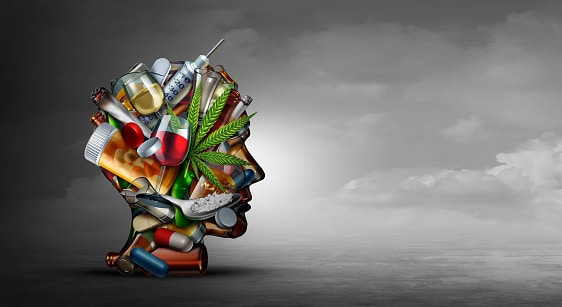If you’ve ever wondered why addiction can grip someone so tightly that nothing else seems to matter, you’re in the right place. This article aims to offer a well-rounded understanding of addiction. We’ll cover its physiological aspects, contributing factors, symptoms, and the pathway to recovery. Our focus is on equipping you with knowledge grounded in scientific research and medical expertise. This is essential information for anyone seeking to comprehend this complex issue.
What is Addiction?
Addiction is a medically recognized condition where an individual feels a compelling need to continually engage in a specific behavior or consume a particular substance, despite adverse consequences. It’s not just a weakness or a lapse in judgment; it’s a disease that impacts the quality of your life over time.

Contrary to common perception, addiction is not limited to substance abuse. One can be addicted to various behaviors, such as gambling, as well. Over time, addictions generally worsen, leading to severe health problems and significant life challenges, like financial instability.
Addiction Versus Substance Abuse
It’s crucial to differentiate between substance abuse and addiction. While addiction involves frequent, dangerous behavior or substance use, substance abuse doesn’t always lead to addiction. Substance abuse is often a precursor but is not synonymous with addiction.
Substances and Behaviors Leading to Addiction
Contrary to popular belief, addiction is not just about drugs or alcohol. The term “Substance Use Disorder” (SUD) is widely used to describe addiction to substances like alcohol or narcotics. Interestingly, only gambling disorder is officially acknowledged as an addiction by the American Psychiatric Association.
The list of addictive substances includes, but is not limited to, alcohol, cannabis, opioids, stimulants like cocaine, tobacco, and even certain foods.
How Addiction Affects Individuals
Addiction impacts a person’s ability to refrain from the substance or activity. It weakens self-control, heightens cravings, and tends to neglect the negative outcomes of the behavior. Physiological dependence often develops, leading to severe withdrawal symptoms when attempting to quit.
Underlying Causes of Addiction
Brain Chemistry
Certain chemical imbalances or mental health issues can make individuals more susceptible to addiction. Regions like the nucleus accumbens and the anterior cingulate cortex are involved in reward processing and seeking behaviors.
Early Exposure
Early exposure to addictive substances or behaviors often contributes to the development of addiction later in life.
Genetics
Genetic factors account for approximately 50% of a person’s predisposition to addiction, although genetics alone doesn’t guarantee it.
Environmental Factors
Social environment, cultural background, and peer pressure can significantly influence the onset of addiction.
Personal Experiences
Traumatic experiences or high-stress lifestyles can lead to substance abuse as a coping mechanism.
Stages of Addiction
- Experimentation: Initial usage is driven by curiosity.
- Regular Usage: The individual starts using the substance or engaging in the activity frequently.
- Problem Stage: Disregard for consequences and excessive indulgence.
- Dependency: Ignoring negative outcomes and daily engagement in the behavior.
Signs and Symptoms
Signs of addiction can range from intense cravings and loss of self-control to the inability to meet responsibilities. Other indicators include:
- Risk-taking behaviors
- Compulsion to use
- Health impacts
- Inability to quit despite adverse effects
Treatment and Recovery
Addiction is a lifelong condition requiring ongoing care and individualized treatment. It’s essential to seek medical guidance for tailored treatment plans that may include medications, behavioral therapies, and support groups.
Conclusion
Addiction is a complex, multi-faceted condition that affects individuals and societies alike. It is crucial to recognize that addiction is a chronic condition requiring ongoing treatment. While quitting abruptly is not advised, medical interventions can make the journey to recovery more achievable.
By understanding the intricacies of addiction, we can better equip ourselves to help those in need and contribute to a healthier society.

Editorial Staff
Our writers, editors, content managers, and SEO specialist. We all take part in crafting amazing articles. We spend hours ensuring that each article is based on facts, researched, and thorough. You'll never want to click the back button to look for more answers other than here!
